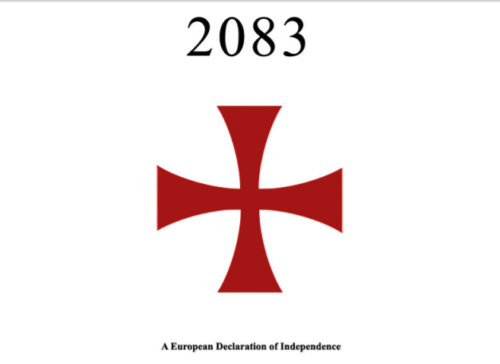
This reading carries on from here.
In this section (c. pages 426-573), Breivik discusses “Modern Jihad”, or how adherents of the Islamic religion fight for supremacy in the modern world. Opening with a quote of Surah 9 verse 5, in which Muslims are admonished to “kill the unbelievers wherever you find them”, this section details the existing Jihads carried out by Muslims against non-Muslims.
In his characteristic way, Breivik exhaustively catalogues the crimes committed by Muslims against non-Muslims. No offence, not even ones as prosaic as common assault, is too minor to be listed here. This is enough to give the impression that Islam is at war with every other culture that it shares a border with.
To some extent, Breivik has a point here. There are very few peaceful borders between Muslim-controlled areas and non-Muslim controlled ones, and prospects for there being more are very slim.
However, one glaring point is missed: if Islam is so ruthlessly aggressive when it comes to purging non-Muslims from Muslim lands, why are there still non-Muslims there? Nazi Germany managed to exterminate the vast bulk of European Jewry in fewer than six years of trying – how can it be that non-Muslim communities still exist in Muslim lands after what we are told has been 1,300 years of relentless extirpation?
Breivik mentions that one-sixth of the population of Egypt are Christians still. This seems like an extraordinarily high proportion for a group that has suffered 1,300 years of ethnic cleansing. The Native American population of the USA, the Aboriginal population of Australia and the Maori population of New Zealand are all much lower than this – and they were displaced over 400 years or less, meaning that the Christian exterminations of unwanted populations has been an order of magnitude more efficient and aggressive than those carried out by Muslims.
Moreover, the exhaustive list of Muslim crimes against non-Muslims is not compared to the list of non-Muslim crimes against non-Muslims, so there is no reference point against which to decide whether this list has any import. 800 Americans are shot dead by other Americans every single month – a monthly list of crimes much longer than the Muslim crimes detailed by Breivik in this document. And this is with a population one-fifth of the size of the Muslim world.
To some extent, Breivik is playing on the infamous persecution mania of Christians who see enemies everywhere and a never-ending infernal plot to drive them from the world in order to conquer it in the name of Satan. Ironically, although Breivik correctly points out that Muslims always try to cast themselves as the victims in order to gain sympathy, he does the exact same thing in this document.
There are many ways in which Breivik’s discontent with the current European situation is a consequence of the failure of European leaders. He correctly points out that part of the reason why Europeans are losing rights to increased security measures is because of the Islamic presence in Europe – had Europe never let the Muslims in, they never would have lost the freedoms that have been taken from them in the fight against extremism.
What needs to be done in response is clear. According to Breivik the terms of victory are “the total banishment of traditional Islam from a specific country. Widespread emigration/deportation and large scale conversion of Muslims in the country.”
This is necessary because “An objective analysis can never reach the conclusion that Islam is peaceful, tolerant and consistent with human rights.” Here, Breivik re-emphasises the point that Islam has never undergone a reformation of any kind. What Westerners foolishly call “moderate Muslims” are simply Muslims who are not particularly religious.
This section ends with a frightening question: “How was it possible that Immanuel Kant, who lived in a German state without liberal democracy, could criticise basic aspects of religion in the 18th century, while in the West of the 21st century there are social and legal consequences for criticising other religions and cultures?”
Have we really gone backwards since the Enlightenment?
